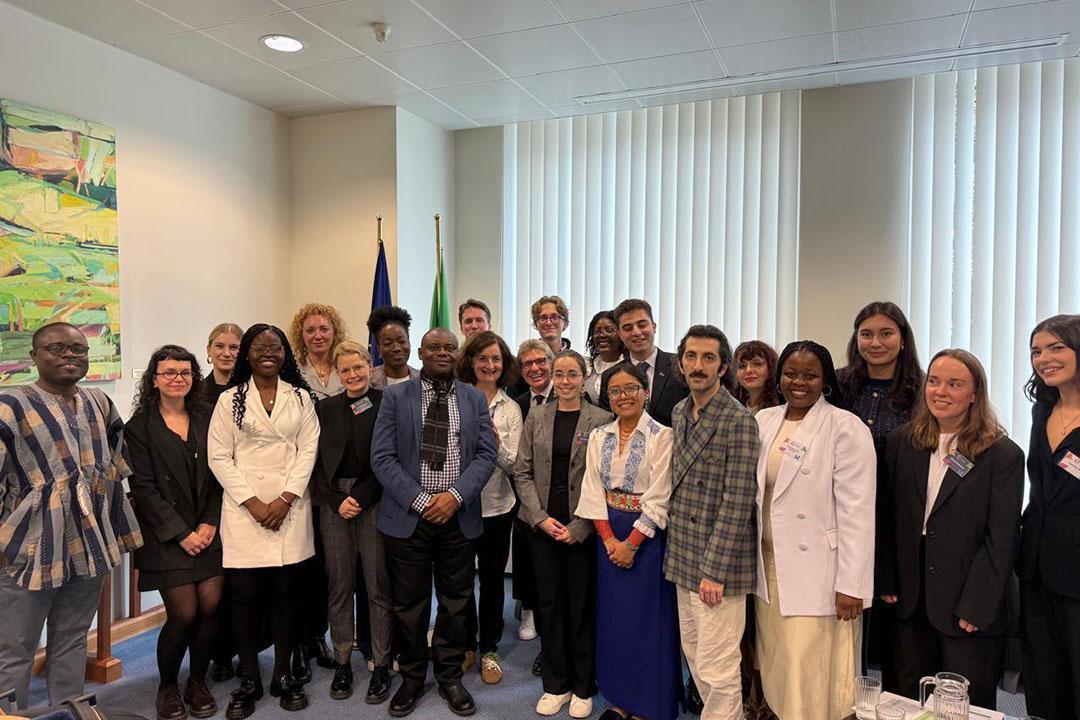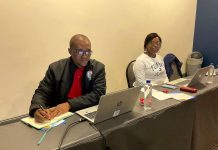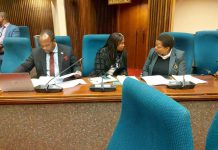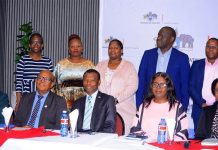Africa-Press – Eswatini. The Chairperson of the European Union’s Youth Advisory Board (YAB) in Eswatini Busiswa Noyise Dlamini has successfully participated in the Second EU Youth, Peace and Security (YPS) Conference held in Brussels from 10 to 14 November 2025.
The Eswatini youth leader was invited by the European Union to join young peacebuilders and policy specialists from across the world for a gathering commemorating ten years since the adoption of UN Security Council Resolution 2250, which recognised the role of young people in peacebuilding. Her participation was fully supported by the EU Delegation in Eswatini. The EU and Eswatini partnership priority for 2021-2027 is Human Development and Social Inclusion which includes a focus on youth empowerment and skills development.
The conference brought together youth leaders, experts and EU representatives to review progress on the global YPS agenda and to strengthen mechanisms for youth participation in peace, security and governance. For Dlamini, who leads youth engagement informed by the EU Youth Action Plan, the mission offered a rare opportunity to place the experience and aspirations of Eswatini’s young people at the centre of global policy dialogue.
“It has been a great honour to participate at a global youth forum and I am appreciative to the EU in Eswatini for this life-changing opportunity. This event reinforced my commitment to advancing youth governance and climate-peace integration in Eswatini through initiatives such as a Youth Peacebuilders Roundtable,” she said.
Engagements
Her programme began with an engagement with the EEAS Equality Ambassador and her team, who underlined the EU Commission’s emphasis on structured youth participation and the growing influence of youth-led policy contributions. Dlamini shared insights on Eswatini’s youth activities and discussed how self-organised youth structures can shape inclusive policymaking across the EU’s external action pillars.
“Youth are central actors in peace and security, and meaningful engagement requires structural support, such as that provided by the EU Delegation in Eswatini. Climate impacts intersect with peacebuilding, affecting security, food, and livelihoods,” she added.
On the second day, she joined regional bodies and civil society organisations including COMESA, ECOWAS, the Ghana National Youth Authority and the African Union’s Legal Envoy. These sessions focused on regional approaches to peace, the integration of youth into political frameworks, and the importance of cooperation between governments and civic actors.
Getting more value from the visit she also participated in discussions hosted by the DG-INTPA on the national Youth Sounding Board. where she highlighted Eswatini’s lessons on youth participation in via the YAB.
Climate and peace were at the centre of the third day’s working groups.. Dlamini contributed recommendations linking climate shocks to security challenges. Delegates from the UNDP, DG-INTPA, EU parliament, Eu commission and youth climate and peace builders discussed ways to ensure that funding for youth-led climate action becomes more accessible and that mentorship and structured policy inclusion become standard practice.
The fourth day explored institutional legitimacy and political participation, guided by Policy Officer Rok Koželj of the EEAS. Conversations stressed the importance of creating systems that allow young people to take active roles in political processes, local governance structures and peacebuilding institutions. The discussions also examined how youth engagement could be sustained through viable career pathways and long-term leadership development.
The conference concluded with collective reflection and a vote on the Joint Youth Declaration. Although no final consensus was reached, the outcome underscored the diversity of regional contexts and the importance of ensuring inclusivity and broad representation in future youth-led policy documents.
Way forward
Dlamini’s role in Brussels reflects the broader mission of the EU Youth Advisory Board in Eswatini, which is anchored in the EU Youth Action Plan’s pillars of engaging, connecting and empowering young people. The YAB works to promote meaningful youth participation in dialogue with the EU Delegation, strengthen partnerships between youth and public institutions, and equip young people with tools and knowledge to influence governance, climate action and peacebuilding.
Reflecting on her return after the conference, Ms. Dlamini described the experience as transformative. She noted that connecting global frameworks to Eswatini’s realities strengthened her commitment to advancing youth governance and climate-peace integration at home. She highlighted that young people are not passive observers but active contributors to peace and stability, and that the support of institutions such as the EU Delegation in Eswatini is essential in enabling their full participation.
For More News And Analysis About Eswatini Follow Africa-Press







